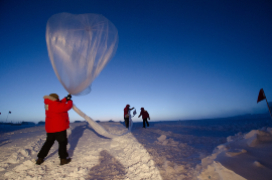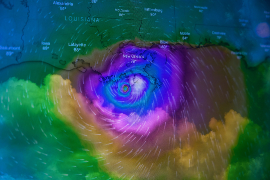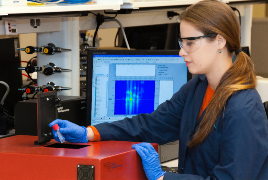Minor in Earth Sciences
UC Santa Cruz
Santa Cruz, CA
The bachelor of science (B.S.) degree in Earth Sciences focuses on fundamental processes that shape the evolution and functioning of the Earth and other objects in our solar system. Earth scientists study big questions, such as how planets form and evolve, or what controls the landscapes around us. Earth scientists also solve problems affecting society, such as water and resource supply, sea level rise, and natural hazards. The Earth Sciences degree combines material from across the physical sciences to prepare students for the competitive graduate school and career marketplace.
Along with the standard Earth Sciences major, we offer concentrations in geology, geophysics, ocean sciences, and planetary sciences; bachelor of arts (B.A.) combined majors with Environmental Studies and with Anthropology; and an Earth Sciences minor.
Learning Experience
The core of the major includes calculus, physics, chemistry, and comprehensive Earth and planetary sciences courses. For the standard B.S., students then select at least six additional courses from a diverse list of upper-division electives in Earth and Planetary Sciences or related departments, with at least two that involve significant laboratory or field data acquisition and analysis. These electives provide the student with a strong foundation and expertise in one or more subdisciplines within Earth science.
Study and Research Opportunities
Faculty and students answer questions such as: how did the Earth form? What is the history of life on Earth? How do mountain ranges form? What causes earthquakes? How do we prevent coastal erosion? What has been the Earth's climate in the past and how will it change? How are other planets in our solar system different from Earth?
✔ Lecture, lab, and field courses cover essential topics and provide unique opportunities to study geology, Earth system sciences, geophysics, geologic hazards, water resources, marine geophysics, surface processes, climate modeling, and planetary science.
✔ Opportunities to participate in research projects with faculty sponsors.
✔ The department has a wide range of laboratory and computational facilities.









